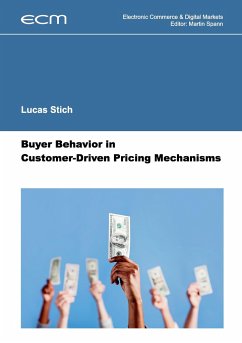In customer-driven pricing mechanisms, sellers delegate (some) control over the final transaction price to their customers. While take-it-or-leave-it posted prices have been the norm in most markets since the mid-nineteenth century, customer-driven pricing mechanisms have experienced a renaissance in recent years. The rise and widespread use of the Internet has fostered this development, owing to lower transaction costs and the facilitation of transactions in electronic markets.This cumulative dissertation contains five separate essays, nested in a general introduction and conclusion. The objective of this cumulative dissertation is to systematically explore the behavioral reactions to customer-driven pricing mechanisms and to analyze the causal factors that drive behavior. More specifically, this dissertation studies the determinants of buyer behavior in customer-driven pricing mechanisms that i) delegate all pricing power to buyers (i.e., Pay What You Want), ii) where sellers can exert some influence, e.g., via a secret threshold price (i.e., Name Your Own Price), as well as, iii) related concepts of price discrimination that are often used in conjunction with customer-driven pricing mechanisms (i.e., Opaque Selling).The results of this dissertation contribute to a better understanding of (1) the driving forces of buyer behavior in customer-driven pricing mechanisms, (2) the profitability and optimal design of customer-driven pricing mechanisms, and (3) the applicability of customer-driven pricing mechanisms in a novel domain.
Hinweis: Dieser Artikel kann nur an eine deutsche Lieferadresse ausgeliefert werden.
Hinweis: Dieser Artikel kann nur an eine deutsche Lieferadresse ausgeliefert werden.








